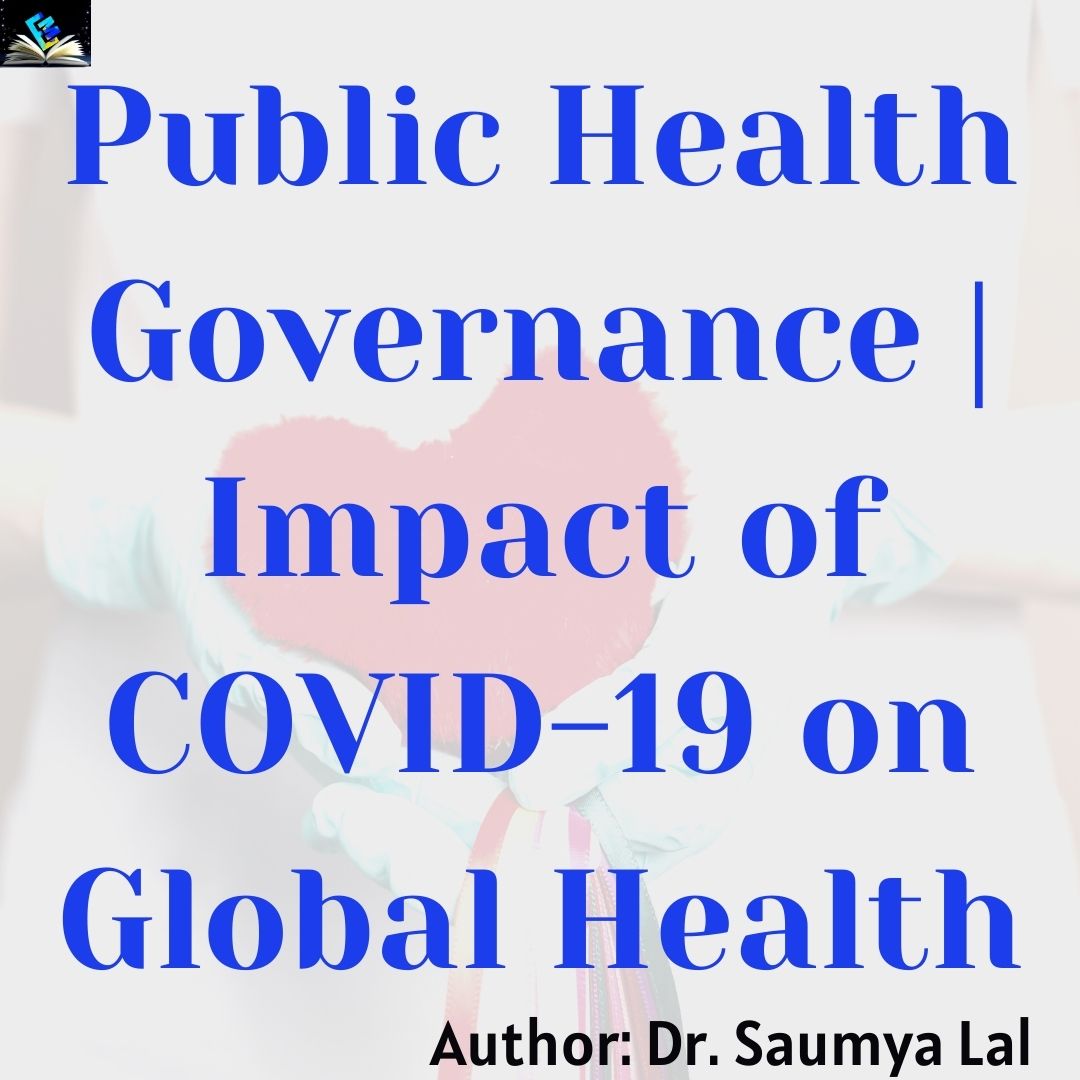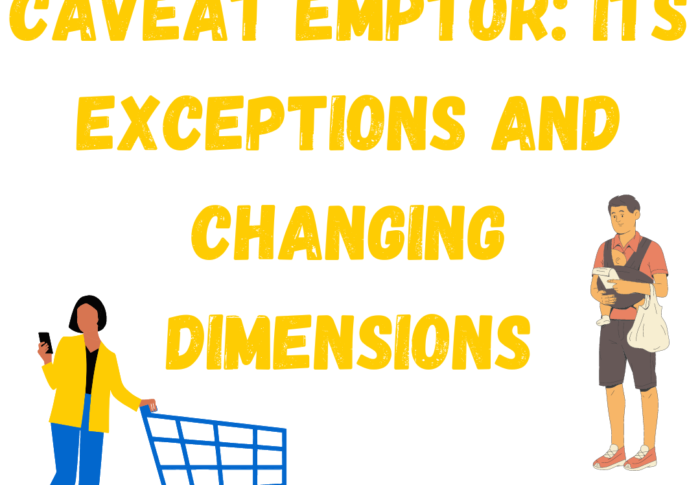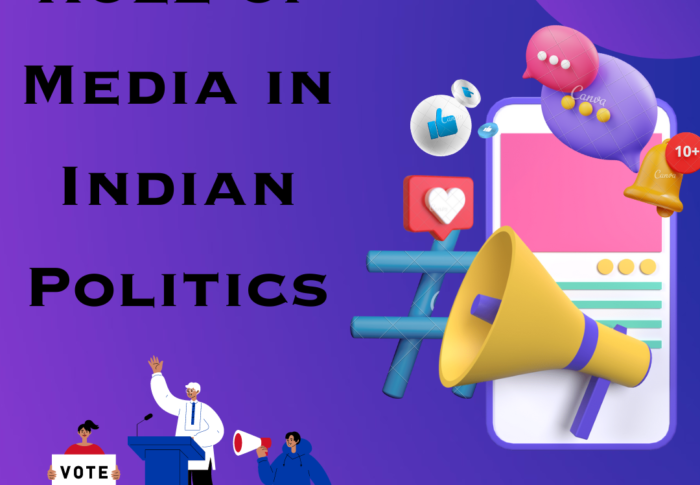
Public Health Governance | Impact of COVID-19 on Global Health
Keywords:- Governance, Politics, Global health, Health care, Pandemic
Author: Dr. Saumya Lal
Introduction
As the international politics of health become more challenging, a profoundly transformed setting means that global health governance faces increasing risks. Rival states are forced to view practically every problem through the warped lens of geopolitical competition. In the relentless process of strategic priority-setting that geopolitics generates across the international system. This dynamic affects the politics of health cooperation, but it also degrades health.
Global health is once again being subordinated to great power politics. The internet contributes to democracies’ political problems. Domestic factions and foreign states use the internet to propagate disinformation and commit other destructive activities both within and against democratic countries. Authoritarian governments have curtailed internet freedom and used it into a weapon against their own citizens and adversaries. These techniques have shown to be effective, ensuring that they will continue to play a role in local and international politics for years to come. These phenomena are not escaping health. Health experts are increasingly faced with disinformation produced by state and non-state actors on the Internet on vaccines, outbreaks and climate change.
Management and governance
Management and governance requires assuring the existence of strategic policy frameworks paired with effective supervision, coalition building, regulation, system design attention and accountability. The health system and its governance are determined by three primary kinds of actors who interact with one another:
- State (governmental and sub-national organisations and agencies);
- healthcare providers, (different public and private clinical, para medical and non-clinical healthcare providers; public and private services providers, trade union and nonprofit organisations;
- care or service networks;
- citizen (population officials, patient associations, CSOs/NGOs, public service providers)
As populations continue to experience demographic and epidemiological transitions, and as people begin to suffer from consequent ageing, longevity and higher life expectancies. Future clinical medicine could lead to increased cost without significantly improving health outcomes.
Thus, medicine aims to become data driven and less individualistic so that population health (compared with only individuals). It is efficiently managed and improved while the costs are being kept excessively high. On the other hand, but in a complementary way, public health will begin to benefit from individualisation and individualisation of community and population well-being initiatives and practises to keep up with pace Public health.
By taking our knowledge of health over and above the traditional disease correlates, genomics helps better improve public health in the population and in population subgroups that are more predisposed to certain conditions and illnesses, which are now more easily stratified into a more detailed genetic risk and predisposition to common or rare diseases. Because some Countries have quite uniform populations, a more accurate public health method can tailor population-level interventions to specific groups whose conditions might have been lost in less customised and traditional public health interventions.
Population Health Management
Population Health Management is another aspect of the public health future that can make similar contributions in the field of genomics. But more focused on the sharing of interoperable, accurate and safe data. Big data can help authorities, regulators, and providers implement tailored actions as well as community promotion, prevention and campaigns, particularly for risky and vulnerable groups. So as to improve the health of the whole population. To predict and analyse trends and health decisions of individuals, lifestyle and environment more precisely.
Public health
These in-depth public health analyses require an approach that is very focused to prevent common diseases that are likely to spread or get endemic in a communal environment, to encourage certain lifestyle practises applicable to parts of the community, to improve care outcomes, to reduce costs and to reach a larger proportion of the population. By knowing the health drivers in a population, issues that can arise are easier to predict and therefore decide on strategies that are most useful for the improvement of health and well-being.
The Covid-19 pandemic was a clear example of role of each member of society as part of health care workforce. And the role of everyone in fostering effective outcomes for public health. Country responses were most successful with strong public health and health systems in governments that used a government-wide approach.
A cross-sector approach to health care, beyond key health stakeholders; one where academic institutes, workplaces, religious leaders, social institutions, civil society and law enforcement can provide the right culture to sustain change, is still essential to obtain effective public health interventions. Public health is to be successful by continuously educating and increasing awareness of individuals about their important participation. Along with their key role in improving public health, combined with digital enabling people to connect and understand their health data.
Future Public Health
The public health future will make more data available – at personal and system level – than ever before. Will thus have to address the challenge and ethical dilemma of the collection and analysis of data, particularly in genomics. The progress of which depends and was supported by advances in data sciences; computer technologies and the development of new and more advanced telecommunicators. As countries and public health systems sequence larger portions of their population. The huge amount of data produced by the next-generation sequence will require data stored and possibly protected beyond the capabilities available.
What we are sure of is that it is uncertain about the future of public health. Globalisation, increased interconnections, social media and easier education open our eyes to wellness lifestyles. Which enables communities not only to enhance their lifetime, but also to enhance their quality of life. The public health future paves the way for everyone who is informed and knows more about health. It is at the centre of our own health as ultimate decision-makers.
COVID-19 has revealed major global (health) administration weaknesses. Particularly the World Health Organisation (WHO) has been struck by the defence it shows towards China. As well as its initial response to it. The pandemic also revealed the validity of many criticisms. Although countries were unwilling to invest in strong global governance systems, but expected to respond quickly in an emergency. In fact, COVID-19 in many ways does not only present a breakdown of global health governance. But also, in particular, a failure to recognise health as a global inherent problem. That is closely linked to other transnational challenges.
Mail us at edumoundofficial@gmail.com






